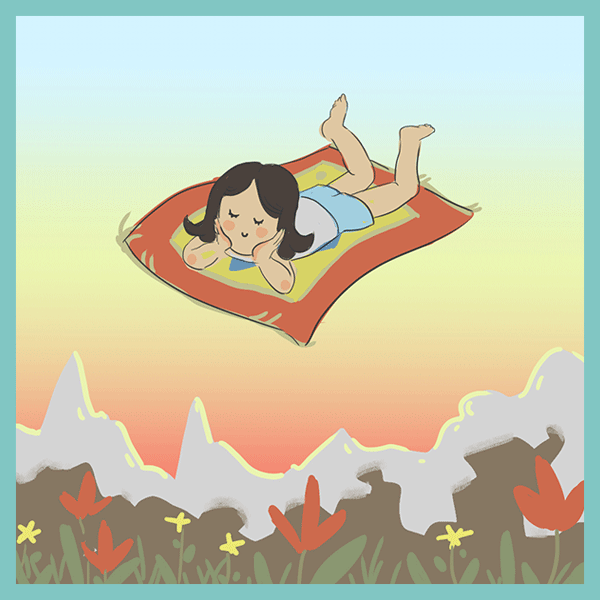Kilim (Rugs) in Persian Proverbs

گلیم
(C1 مُناسب برایِ فارسی آموزانِ سَطح)
در جَهان، هر کشوری به چندِ چیز خاص مَشهور است. مثلاً اگر از کَسانی که آشنایی کَمی با ایران دارند بخواهید ده چیزِ مُرتَبِط با ایران را نام بِبَرَند، اِحتمالاً یکی از واژههایی که به شما میگویند، فَرش است. البته این کِلیشه دربارهی ایران، خیلی هم اِشتباه نیست. هرجایِ ایران که بروید، از خانههای سُنَتّی تا مُدِرن، فَقیر تا ثِروَتمند و حَتّی در خانهی ایرانی هایِ مُقیمِ خارج از ایران، دستِ کم یک فَرش میبینید. اَهَمیَتِ فرش در بینِ ایرانیها آنقدر زیاد است که در ضَربُ المَثَلهای ایرانی هم میتوانید ردِ پایِ فرش و فرشبافی را ببینید. فرشِ ایرانی انواع مختلفی مانندِ قالی، گِلیم، جاجیم و گَبه دارد. در این مَتن دو ضَربُالمَثَل با واژهی گِلیم را یاد می گیریم.
Gelim (Kilim)
(Farsi Level: C1)
All around the world, each country has something to be known for. For instance, if you ask someone who knows Iran to some extent to name ten related things to Iran, most probably one of the items they remember will be carpet. It seems like a cliché, a correct one. Whether you are invited by a poor or a wealthy family to a modernly designed home or a traditional one, in Iran or even outside Iran, you will see carpets at home. Rugs are so important in Iranian culture you can find their trace in Persian proverbs and idiomatic phrases. Iranian carpets have various types and, consequently, different names, such as gelim (kilim), jâjim, qâli, and gabbeh. This article does not intend to teach you technical carpet terms, but you will learn two proverbs with “gelim” as the keyword.
پا را از گلیم خود درازتر کردن
pâ râ az gelim-e xod derâztar kardan
[not cutting one’s coat according to one’s cloth]
اَندازهیِ گلیمِ ما، مَحدودهیِ شَخصیِ ما است. میتوانیم روی گِلیممان بشینیم، بخوابیم، پایمان را دراز کنیم. امّا با توجه به این ضَربُالمَثَلِ فارسی ما اجازه نداریم پا را از مَحدودهی شَخصیِ خودمان فَراتر بُگذاریم. این مَثَل را میتوان در بافتهای گوناگون استفاده کرد. نُخُست، وقتی که بخواهیم بگوییم کسی به چیزی که دارد راضی نیست و بیشتر و بیشتر میخواهد، از این مَثَل استفاده میکنیم. دیگری وقتی که کسی حرفی میزند که دِخالَت در کار ما مَحسوب میشود، میتوانیم بگوییم «پایش را از گلیمش دِرازتر کرده» است. عَلاوه بر این، اگر کسی بخواهد کاری را اَنجام دهد که بسیار فراتَر از توانایی و اِمکاناتش باشد میتوانیم از او بخواهیم که «پایش را به اندازه ی گلیمش دراز کند» تا دُچارِ مُشکل نشود.
The proverb, translated word by word, means stretching someone’s leg according to their rug. This proverb means that our gelim (kilim) is our territory where we can sit, lie down, or stretch, but we are not allowed to go beyond this territory and want more. This proverb can be used in different contexts with different connotations. First, when we want to say that someone is not satisfied with what they have and they want more than what they deserve, we can say, “pâš ro az gelimeš derâztar karde(h).” Moreover, if we warn someone not to go beyond their abilities and avoid their avarice, we can tell them, “pât ro andâze(h)-ye gelimet derâz kon.” The closest English equivalent to this proverb is “cut your coat according to your cloth.”
گفتگوی یک
امیر: مریم، تو و رضا از هم بدتون میاد؟
مَریم: نه، چرا اینطوری فکر میکنی؟
امیر: چون همیشه دارین دعوا میکنین.
مریم: خب، آره بعضی وقتا آدما با هم مشکل دارن و دَعوا میکنن.
امیر: حالا که اینقدر مشکل دارین، چرا از هم جدا نمیشین؟
مریم: دیگه داری پاتو از گلیمت درازتر میکنیا. این چیزا به خودمون مَربوطه، نه به دیگران.
goftogu-ye yek
Amir: Maryam, to’o Rezâ az ham badetun miyâd?
Maryam: na(h), čerâ intori fekr mikoni?
Amir: čon hamiše(h) dârin da’vâ mikonin.
Maryam: xob âre(h), ba’zi vaqtâ âdamâ bâ ham moškel dâran-o da’vâ mikonan.
Amir: hâlâ ke inqadr moškel dârin, čerâ az ham jodâ nemišin?
Maryam: dige(h) dâri pât ro az gelimet derâztar mikoniyâ. In čizâ be xodemun marbute(h), na(h) be(h) digarân.
Dialogue One
Amir: Maryam, do you and Rezâ hate each other?
Maryam: No, why do you think so?
Amir: Cause you are fighting all the time.
Maryam: But people sometimes have problems with each other and they may dispute.
Amir: If you have that many problems, why don’t you get divorced?
Maryam: This is not your business; you are talking about things beyond your rights.
گفتگوی دو
نسرین: فرهاد، شنیدم میخوای ماشین بخری.
فرهاد: آره، دارم یه ماشین خفن میخرم. فقط یهکم گرونه. باید ماهی بیست میلیون تومن قسط بدم.
نسرین: بیست میلیون تومن؟ مگه میتونی؟ تو که درآمدت ماهی پونزده میلیون هم نیست.
فرهاد: دارم دنبالِ پروژه میگردم که بتونم شبها هم تو خونه کار کنم.
نسرین: به نظرم بهتره پات رو اندازهی گلیمت دراز کنی و یه ماشین ارزونتر بخری.
فرهاد: همین جوری فکر میکنی که هیچ وقت پیشرفت نمیکنی دیگه.
نسرین: چی بگم والا.
goftogu-ye do
Nasrin: šenidam mixây mâšin bexari.
Farhâd: âre(h) dâram ye(h) mâšin-e xafan mixaram. faqat ye(h) kam gerune(h). bâyad mâhi bist miliyun toman qest bedam.
Nasrin: bist miliyun toman? mage(h) mituni? to ke(h) darâmadet mâhi punzdah milyun toman ham nist.
Farhâd: dâram donbâl-e porože(h) migardam ke(h) betunam šabhâ ham tu xune(h) kâr konam.
Nasrin: be(h) nazaram behtare(h) “pât ro andâze(h)-ye gelimet derâz koni,” ye(h) mâšin-e arzuntar bexari.
Farhâd: hamijuri fekr mikoni ke hičvaqt pišraft nemikoni.
Nasrin: či begam vâllâ.
Dialogue Two
Nasrin: I’ve heard you are buying a car.
Farhâd: Yeh, I’m buying an excellent car. But it’s expensive. I’ve to pay twenty million Toman a month.
Nasrin: Twenty million? Can you? You’re salary is not even 15 million.
Farhâd: I’m looking for a project to work remote, too.
Nasrin: I think it was better to cut your coat according to your cloth and buy a cheaper car.
Farhâd: You’ll never progress with this way of thinking.
Nasrin: Don’t know what to say.
گلیم خود را از آب کشیدن
gelim-e xod râ az âb kešidan
[to paddle your own canoe]
گلیم از پَشم بافته میشود و برای همین سَنگین است. اگر گلیم را در آب بیاندازیم سَنگینتر هم میشود و بیرون کشیدن آن از آب سختتر. وقتی کسی بتواند «گِلیم خودش را از آب بِکِشَد»، یعنی میتواند مُشکلاتش را به تنهایی حَل کند. این ضربُالمَثَل را وقتی استفاده میکنیم که بتوانیم کارهایِ سخت را خودمان انجام بدهیم، مسئولیتِ کارهایمان را بِپذیریم و خودمان را از گِرفتاری نِجات بدهیم.
Gelim (Kilim) is woven from woolen threads, so it is heavy itself. If you soak gelim, it becomes even heavier, and taking it out of the water needs more effort. If someone can take their gelim out of the water, gelim-e xodešun ro az âb bekešan, they can handle their life alone. This proverb is used when we want to emphasize that we can cope with our problems without help and that we take responsibility for our issues and the consequences of our deeds.
گفتگوی یک
بابا: شیوا جان! تو دیگه بیست سالته، باید کار کنی و «گلیم خودت رو از آب بکشی.»
شیوا: اما بابا من هنوز دانشجوئَم.
بابا: آره، ولی دستِ کم میتونی کار نیمهوقت داشته باشی.
شیوا: باشه، سَعیم رو میکنم.
goftogu-ye yek
bâbâ: Šivâ Jân!to dige(h) bist sâlet-e(h). bâyad kâr koni-yo “gilim-e xodet-o az âb bekeši.”
Šivâ: ammâ bâbâ, man hanuz dânešju’am.
bâbâ: âre(h), vali dast-e kam mituni kâr-e nemie(h)vaqt dâšte(h) bâši.
Šivâ: bâše(h), sa’yam ro mikonam.
Dialogue One
Dad: Šivâ, you are twenty now. You have to work and “paddle your canoe.”
Šivâ: But dad, I am still a university student.
Dad: Yep, but you can at least give it a try.
Šivâ: ok, I’ll do my best.
گفتگوی دو
بابک: شنیدی محمد داره مُهاجرت میکنه.
شیلا: محمد؟ مُهاجرت؟ کجا داره میره؟
بابک: کانادا.
شیلا: اون که تا دیروز مامانش تَر و خُشکِش میکرد.
بابک: آره، یهکم لوسه. اما اگه بره کانادا و مُستَقِل بشه، یاد میگیره چطور «گِلیم خودش رو از آب بِکشه.»
شیلا: من که نمیتونم باوَر کنم.
goftogu-ye do
Bâbak: šenidi Mohammad dâre(h) mohâjerat mikone(h)?
Šilâ: Mohammad? mohâjerat? Kojâ dâre(h) mire(h)?
Bâbak: Kânâdâ.
Šilâ: un ke tâ diruz mâmâneš tar-o xoškeš mikard.
Bâbak: âre(h), ye(h)kam luse(h). ammâ age(h) bere(h) kânâdâ- o mostaqel beše(h), yâd migire(h) četor “gelim-e xodeš ro az âb bekeše(h).”
Šilâ: man ke(h) nemitunam bâvar konam.
Dialogue Two
Bâbak: Have you heard that Mohammad is migrating?
Šilâ: Mohammad? Migration? Where is he going?
Bâbak: Canada.
Šilâ: But it is her mum looking after him all the time.
Bâbak: Yep, he is a bit spoiled. But if he goes to Canada and becomes independent, he can “paddle his canoe.”
Šilâ: I can’t believe it, though.







Leave A Comment